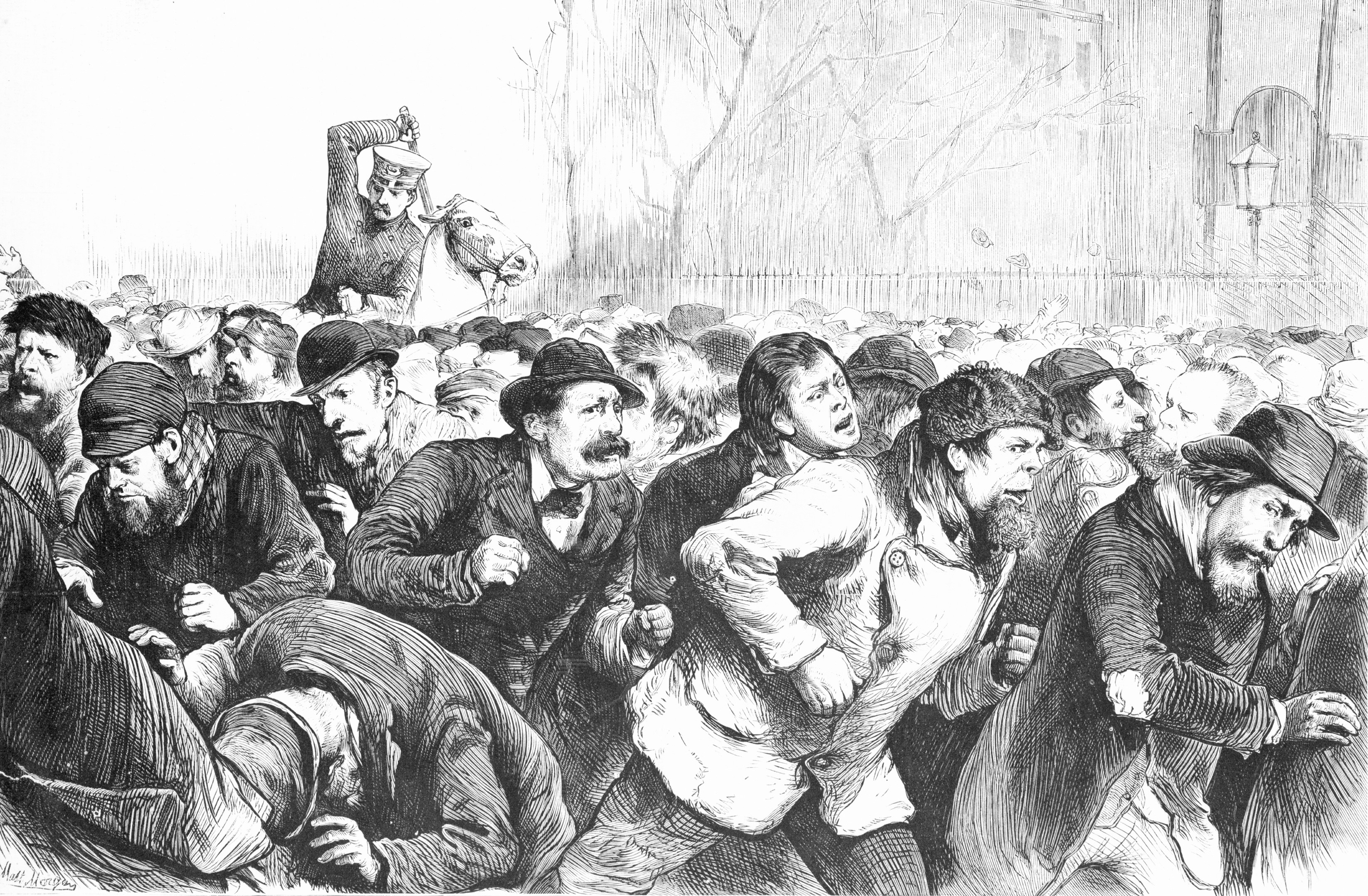|
Debt Jubilee
A debt jubilee is a clearance of debt from public records across a wide sector or a nation. Such a jubilee was proposed as a solution to debt incurred or anticipated during the COVID-19 recession. The American economist Michael Hudson is a proponent of a debt jubilee, writing in a ''Washington Post'' op-ed that it was an alternative to a depression. Similarly, anthropologist David Graeber pointed to kings' historical use of debt jubilees during regime changes to suggest that a debt jubilee would have been an appropriate response to the 2008 financial crisis. Australian economist Steve Keen is a proponent of debt jubilee. To deal with debt we have to address the trillions of outstanding bad debts. Over the past decade, the world’s central banks have sent interest rates to record lows as their response. See also * Jubilee (biblical) * Seisachtheia * Write-down References Further reading * * Jubilee A jubilee is a particular anniversary of an event, usually denoting the 2 ... [...More Info...] [...Related Items...] OR: [Wikipedia] [Google] [Baidu] |
COVID-19 Recession
The COVID-19 recession, also referred to as the Great Lockdown, is a global recession, global economic recession caused by the COVID-19 pandemic. The recession began in most countries in February 2020. After a year of global economic slowdown that saw stagnation of economic growth and consumer activity, the COVID-19 lockdowns and other precautions taken in early 2020 drove the global economy into crisis. Within seven months, every advanced economy had fallen to recession. The first major sign of recession was the 2020 stock market crash, which saw major indices drop 20 to 30% in late February and March. Recovery began in early April 2020; by April 2022, the GDP for most major economies had either returned to or exceeded pre-pandemic levels and many market indices recovered or even set new records by late 2020. The recession saw unusually high and rapid increases in unemployment in many countries. By October 2020, more than 10 million unemployment cases had been filed in the U ... [...More Info...] [...Related Items...] OR: [Wikipedia] [Google] [Baidu] |
Michael Hudson (economist)
Michael Hudson (born March 14, 1939) is an American economist, Professor of Economics at the University of Missouri–Kansas City and a researcher at the Levy Economics Institute at Bard College, former Wall Street analyst, political consultant, commentator and journalist. He is a contributor to ''The Hudson Report'', a weekly economic and financial news podcast produced by Left Out. Hudson graduated from the University of Chicago (BA, 1959) and New York University (MA, 1965, PhD, 1968) and worked as a balance of payments economist in Chase Manhattan Bank (1964–1968). He was assistant professor of economics at the New School for Social Research (1969–1972) and worked for various governmental and non-governmental organizations as an economic consultant (1980s–1990s). Hudson has devoted his career to the study of debt, both domestic debt (loans, mortgages, interest payments), and external debt. In his works, he consistently advocates the idea that loans and exponentially gr ... [...More Info...] [...Related Items...] OR: [Wikipedia] [Google] [Baidu] |
Depression (economics)
An economic depression is a period of carried long-term economical downturn that is result of lowered economic activity in one major or more national economies. Economic depression maybe related to one specific country were there is some economic crisis that has worsened but most often reflexes historically the American Great Depression and similar economic status that may be recognized as existing at some country, several countries or even in many countries. It is often understood in economics that economic crisis and the following recession that maybe named economic depression are part of economic cycles where slowdown of economy follows the economic growth and vice versa. It is a result of more severe economic problems or a ''downturn'' than the economic recession, recession itself, which is a slowdown in economic activity over the course of the normal business cycle of growing economy. Economic depressions maybe also characterized by their length or duration, and maybe showing ... [...More Info...] [...Related Items...] OR: [Wikipedia] [Google] [Baidu] |
David Graeber
David Rolfe Graeber (; February 12, 1961September 2, 2020) was an American anthropologist and anarchist activist. His influential work in economic anthropology, particularly his books '' Debt: The First 5,000 Years'' (2011) and ''Bullshit Jobs'' (2018), and his leading role in the Occupy movement, earned him recognition as one of the foremost anthropologists and left-wing thinkers of his time. Born in New York to a working-class Jewish family, Graeber studied at Purchase College and the University of Chicago, where he conducted ethnographic research in Madagascar under Marshall Sahlins and obtained his doctorate in 1996. He was an assistant professor at Yale University from 1998 to 2005, when the university controversially decided not to renew his contract before he was eligible for tenure. Unable to secure another position in the United States, he entered an "academic exile" in England, where he was a lecturer and reader at Goldsmiths' College from 2008 to 2013, and a profe ... [...More Info...] [...Related Items...] OR: [Wikipedia] [Google] [Baidu] |
2008 Financial Crisis
8 (eight) is the natural number following 7 and preceding 9. In mathematics 8 is: * a composite number, its proper divisors being , , and . It is twice 4 or four times 2. * a power of two, being 2 (two cubed), and is the first number of the form , being an integer greater than 1. * the first number which is neither prime nor semiprime. * the base of the octal number system, which is mostly used with computers. In octal, one digit represents three bits. In modern computers, a byte is a grouping of eight bits, also called an octet. * a Fibonacci number, being plus . The next Fibonacci number is . 8 is the only positive Fibonacci number, aside from 1, that is a perfect cube. * the only nonzero perfect power that is one less than another perfect power, by Mihăilescu's Theorem. * the order of the smallest non-abelian group all of whose subgroups are normal. * the dimension of the octonions and is the highest possible dimension of a normed division algebra. * the first number ... [...More Info...] [...Related Items...] OR: [Wikipedia] [Google] [Baidu] |
Rolling Jubilee
Strike Debt is a decentralized debt resistance collective. Formed as an offshoot from Occupy Wall Street and the Occupy movement, it is similar to Occupy Sandy in practicing " mutual aid as direct action". In 2012, they published the Debt Resistors Operations Manual. Rolling Jubilee Rolling Jubilee is a Strike Debt initiative that purchases and forgives monetary debt on the secondary market. Bank loans deemed unlikely to be repaid are reclassified as risky. Banks looking to recuperate the debt's little outstanding worth resell these portfolios on the secondary market at a fraction of their original worth. This type of high-risk debt is normally purchased by debt collectors who believe they can recover more from the loan than the banks could. The Rolling Jubilee, however, using crowdfunded donations and telethons, buys the debt to forgive it. The ideological impetus for the scheme came from '' Debt: The First 5,000 Years'', in which the anthropologist David Graeber advocates f ... [...More Info...] [...Related Items...] OR: [Wikipedia] [Google] [Baidu] |
Steve Keen
Steve Keen (born 28 March 1953) is an Australian economist and author. He considers himself a post-Keynesian, criticising neoclassical economics as inconsistent, unscientific and empirically unsupported. The major influences on Keen's thinking about economics include John Maynard Keynes, Karl Marx, Hyman Minsky, Piero Sraffa, Augusto Graziani, Joseph Alois Schumpeter, Thorstein Veblen, and François Quesnay. Hyman Minsky's financial instability hypothesis forms the main basis of his major contribution to economics which mainly concentrates on mathematical modelling and simulation of financial instability. He is a notable critic of the Australian property bubble, as he sees it. Keen was formerly an associate professor of economics at University of Western Sydney, until he applied for voluntary redundancy in 2013, due to the closure of the economics program at the university. In autumn 2014, he became a professor and Head of the School of Economics, History and Politics at Kingsto ... [...More Info...] [...Related Items...] OR: [Wikipedia] [Google] [Baidu] |
Jubilee (biblical)
The Jubilee ( he, יובל ''yōḇel;'' Yiddish: ''yoyvl'') is the year at the end of seven cycles of ''shmita'' (Sabbatical years) and, according to biblical regulations, had a special impact on the ownership and management of land in the Land of Israel. According to the Book of Leviticus, Hebrew slaves and prisoners would be freed, debts would be forgiven, and the mercies of God would be particularly manifest. Rabbinic literature mentions a dispute between the Sages and Rabbi Yehuda over whether it was the 49th year (the last year of seven sabbatical cycles, referred to as the Sabbath's Sabbath), or whether it was the following (50th) year. The Jubilee ("Year of Release") deals largely with land, property, and property rights. The biblical rules concerning Sabbatical years are still observed by many religious Jews in Israel, but the regulations for the Jubilee year have not been observed for many centuries. According to the post-exile rabbinic interpretation of Torah, observa ... [...More Info...] [...Related Items...] OR: [Wikipedia] [Google] [Baidu] |
Seisachtheia
Seisachtheia ({{Lang-el, σεισάχθεια, from σείειν ''seiein'', to shake, and ἄχθος ''achthos'', burden, i.e. the relief of burdens) was a set of laws instituted by the Athenian lawmaker Solon (c. 638 BC–558 BC) in order to rectify the widespread serfdom and slavery that had run rampant in Athens by the 6th century BCE, by debt relief. Debt in Athenian society Under the pre-existing legal status, according to the account of the '' Constitution of the Athenians'' attributed to Aristotle, debtors unable to repay their creditors would surrender their land to them, then becoming ''hektemoroi'', i.e. serfs who cultivated what used to be their own land and gave one sixth of produce to their creditors. Should the debt exceed the perceived value of debtor's total assets, then the debtor and his family would become the creditor's slaves as well. The same would result if a man defaulted on a debt whose collateral was the debtor's personal freedom. Seisachtheia re ... [...More Info...] [...Related Items...] OR: [Wikipedia] [Google] [Baidu] |
Write-down
A write-off is a reduction of the recognized value of something. In accounting, this is a recognition of the reduced or zero value of an asset. In income tax statements, this is a reduction of taxable income, as a recognition of certain expenses required to produce the income. Income tax In income tax calculation, a write-off is the itemized deduction of an item's value from a person's taxable income. Thus, if a person in the United States has a taxable income of $50,000 per year, a $100 telephone for business use would lower the taxable income to $49,900. If that person is in a 25% tax bracket, the tax due would be lowered by $25. Thus the net cost of the telephone is $75 instead of $100. In order for business owners to write off business expenses, the IRS states that purchases must be both ordinary and necessary. This means that deductible items must be usual and required for the business owner's field of work. For example, a telemarketer may deduct the purchase of a phone, sin ... [...More Info...] [...Related Items...] OR: [Wikipedia] [Google] [Baidu] |
Debt
Debt is an obligation that requires one party, the debtor, to pay money or other agreed-upon value to another party, the creditor. Debt is a deferred payment, or series of payments, which differentiates it from an immediate purchase. The debt may be owed by sovereign state or country, local government, company, or an individual. Commercial debt is generally subject to contractual terms regarding the amount and timing of repayments of principal and interest. Loans, bonds, notes, and mortgages are all types of debt. In financial accounting, debt is a type of financial transaction, as distinct from equity. The term can also be used metaphorically to cover moral obligations and other interactions not based on a monetary value. For example, in Western cultures, a person who has been helped by a second person is sometimes said to owe a "debt of gratitude" to the second person. Etymology The English term "debt" was first used in the late 13th century. The term "debt" comes ... [...More Info...] [...Related Items...] OR: [Wikipedia] [Google] [Baidu] |



.jpg)

